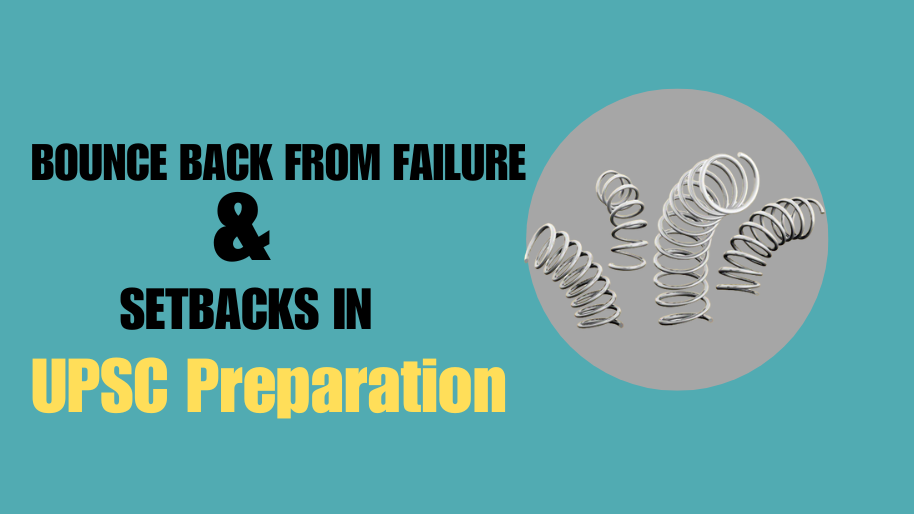The Art of Resilience: How to Bounce Back from Failure and Setbacks in UPSC Preparation
Preparing for the Union Public Service Commission exams requires hard work, rigorous study, and often multiple setbacks. Acknowledging failure as part of this process is crucial, while mastering resilience will enable one to turn any setbacks into opportunities for success. Let’s understand how best ias coaching in Bhubaneswar aids in the same.
Understanding that failure is a part of the learning process
Failure should not be seen as the opposite of success; rather, it should be seen as part of it. When it comes to UPSC preparation, every misstep or setback provides invaluable lessons. Instead of viewing failure as something to avoid at all costs, shift your perspective by viewing it instead as a feedback mechanism that allows you to assess where things went wrong, adjust strategies accordingly, and ultimately improve performance for subsequent attempts.
Strategies for coping with disappointment and frustration
Negative emotions such as disillusionment and frustration are understandable reactions to setbacks; however, dwelling on them could impede progress. Here are some strategies for dealing with them.
- Acknowledging Your Emotions: Accept that it’s okay to feel discouraged; suppressing emotions can lead to burnout. Let yourself have time to process these feelings before proceeding forward with life.
- Communicate Your Frustrations: Venting to friends, family or mentors about your frustrations may bring relief and new perspectives, as they offer support and encouragement when you most need it.
- Practice Mindfulness. Meditation and deep breathing techniques can help you stay centred, relieving stress while strengthening emotional resilience and allowing you to handle setbacks more easily.
How to analyze and learn from mistakes
Mistakes Are Opportunities to Grow Mistakes should be seen as opportunities to learn, so in order to do so effectively, take the following approach to analyze and learn from them:
- Assess Your Preparation: Take time to think back on where your preparation fell short, including an insufficient understanding of particular subjects, poor time management practices or exam anxiety.
- Engage Mentors or Peers Who Provide Feedback: Recruit mentors or peers who can offer constructive criticism; this can give insight into areas you might have missed before.
- Implement Changes: Once your reflections and feedback have been taken into consideration, modify your study plan by strengthening weak areas and refining strategies.
Techniques for building resilience and mental toughness
Resilience is the ability to rebound after encountering difficulty while creating mental toughness involves developing habits and mindsets which reinforce perseverance:
- Set Realistic Goals: Set yourself realistic goals that won’t overwhelm you and will provide a sense of achievement as your preparation progresses. This approach helps prevent overwhelm while offering a sense of progress as time goes on.
- Establish Discipline: Relying on discipline to prepare for the UPSC exam can be daunting, so set a study routine that you will commit to, no matter what your motivation level drops.
- Visualize Success: Visualizing success can give your confidence a boost. Visualizing yourself achieving success through mental rehearsal can enhance performance.
The importance of self-care and stress management
Self-care and stress management are necessary during an intense preparation period; keeping physical and mental wellness is paramount in terms of overall well-being.
- Prioritize Sleep: Make sure you are getting sufficient rest; insufficient rest can impair cognitive performance and hinder productivity.
- Stay Active: Regular physical activity can raise energy levels and decrease stress, so make time for yoga, jogging, or taking a brisk walk as part of your everyday routine.
- Healthy Eating: Eating healthily and responsibly is vital to brain function and overall wellness. Avoiding caffeine and junk food, which can lead to energy crashes and poor concentration, can provide optimal brain support.
See Also: https://aptiplus.in/blogs/journey-of-prajwal-chaurasia-2/
Maintaining a Growth Mindset
A growth mindset is the belief that abilities can be developed through hard work. Adopting such an outlook is crucial for remaining motivated: it provides hope for improvement rather than discouragement and increases motivation levels.
- Welcome Challenges: View challenges as opportunities rather than threats; this mindset encourages continual improvement and resilience.
- Acknowledging Progress: Recognizing and celebrating your successes – no matter how small – helps keep you motivated and reinforces a positive outlook.
- Stay Curious: Foster your interest in learning by nurturing curiosity. Curiosity drives engagement and makes the process enjoyable, making setbacks easier to overcome.
Resilience in UPSC preparation means accepting failure, learning from mistakes and striving for continuous improvement. By adopting these strategies Apti Plus, the best ias coaching in Bhubaneswar, helps build the mental toughness necessary to navigate this challenging journey with grace and dignity. Remember: each setback can only lead to greater resilience; stay resilient, and success will come your way!



